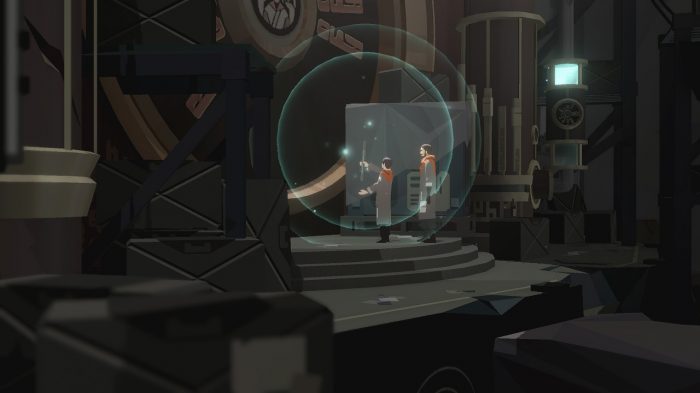The OPUS series seemed to start off on the wrong foot, but has improved and garnered more fans with each release. OPUS: Echo of Starsong, the third game, is a culmination of everything developer Sigono Inc has implemented throughout the games, providing an experience that feels as close to an epic space opera as you’re likely to get.
OPUS: Echo of Starsong may be the third game in the series but that doesn’t necessarily mean you need to play the first two titles before this one. While I’d never heard of the series before playing the Full Bloom Edition on Switch, it’s clear each story is separate from the other and all they share is a universe. Still, hardcore fans believe the games should be enjoyed in order so that the jump in additional mechanics is more obvious. Even without the past games for reference though, it’s clear that this entry does a lot.

You take on the role of Jun, a noble who is reliving his past memories. The story is told through a combination of in-game action and comic book-style cutscenes that are always gripping. The Full Bloom Edition has voice acting for the colossal cast of memorable characters in Japanese or Chinese Mandarin; despite speaking neither, I feel that they add something to the delivery of each line that can’t be captured otherwise. However, it’s hard to hide the fact that this game is little more than a slightly more interactive visual novel. Though there are major differences that make it much better to play.
The first thing OPUS: Echo of Starsong tells you is that it advises you to wear headphones while playing. I recommend taking this on board because music plays a rather large role in the gameplay and story, and it’s just an overall better experience if you also take the time to enjoy the amazing soundtrack. Some puzzles are solved using specific Starsongs, which require you to listen to what’s going on and change your actions appropriately. This doesn’t work as well without audio, so headphones are a must.

The bulk of the gameplay is based in space, controlling Jun’s ship as you pick and choose places to fly to around the system. Each destination has a chance to trigger a random event, while others have story beats. The story locations are more involved, and Jun will get out of the ship to walk around and engage with some platforming puzzles, while the randomised events lead to dialogue choices and dice rolls, the outcomes of which can impact the rest of the story.
The dice rolls add some variety to the gameplay and having that sense of freedom of being able to travel wherever you want is almost overwhelming. This is only heightened by your ship, which you need to keep topped up with fuel and armour. If you don’t, you can find yourself in an endgame state long before the end of the game. This seems slightly unfair given that you can spend dozens of hours working your way through all the destinations and deliberating the best choices, only for it all to end with an anti-climax. Still, this forces you to pay attention to what you’re doing, knowing full well that any mistakes are on you and no one else.
When it comes to directly controlling Jun, things are a bit less interesting. Environments are made up of cleverly-disguised platforming levels that require the use of music and Starsongs to complete. These are good and add something new into the mix after a long time in space, but they’re not as all-encompassing as the story beats are.

As mentioned a couple of times, it’s the universe of OPUS: Echo of Starsong that’s the true draw. You can tell that a lot of effort has been put into making a grounded sci-fi future that players can sink their teeth into with every new story moment and more. For example, items you pick up throughout the game have complete glossary entries on what they are and how they link to the wider universe, so you know exactly what it is you’re holding, even if it’s a single-use item you’ll never see again. There are hundreds of these, and reading them never gets old if you’re into the universe being presented.
However, as good as the text entries are, they aren’t interactive and they don’t add much to the gameplay. This is fine for players who know what they’re getting into, but most won’t. In a way it’s similar to Dark Souls because those text entries only add to the game, they’re not required to play or enjoy it. Sure, you’ll miss out on the relevance of items or the importance of some conversations without the background information the entires give you, but they don’t break the game if you ignore them by any means.

OPUS: Echo of Starsong is a fantastic game, but (and it’s a big but) you really need to want to play it. There’s a great game for those that enjoy this interactive visual novel style, but it could definitely do with being more engaging and less text-heavy. If you’re into epic sci-fi adventures, however, don’t let anything put you off from playing.
OPUS: Echo of Starsong-Full Bloom Edition £22.49
Summary
OPUS: Echo of Starsong is a fantastic visual novel but is difficult to get into in many other ways. It’s not easy for players to tackle if they can’t handle big text dumps or seek out the story themselves.

